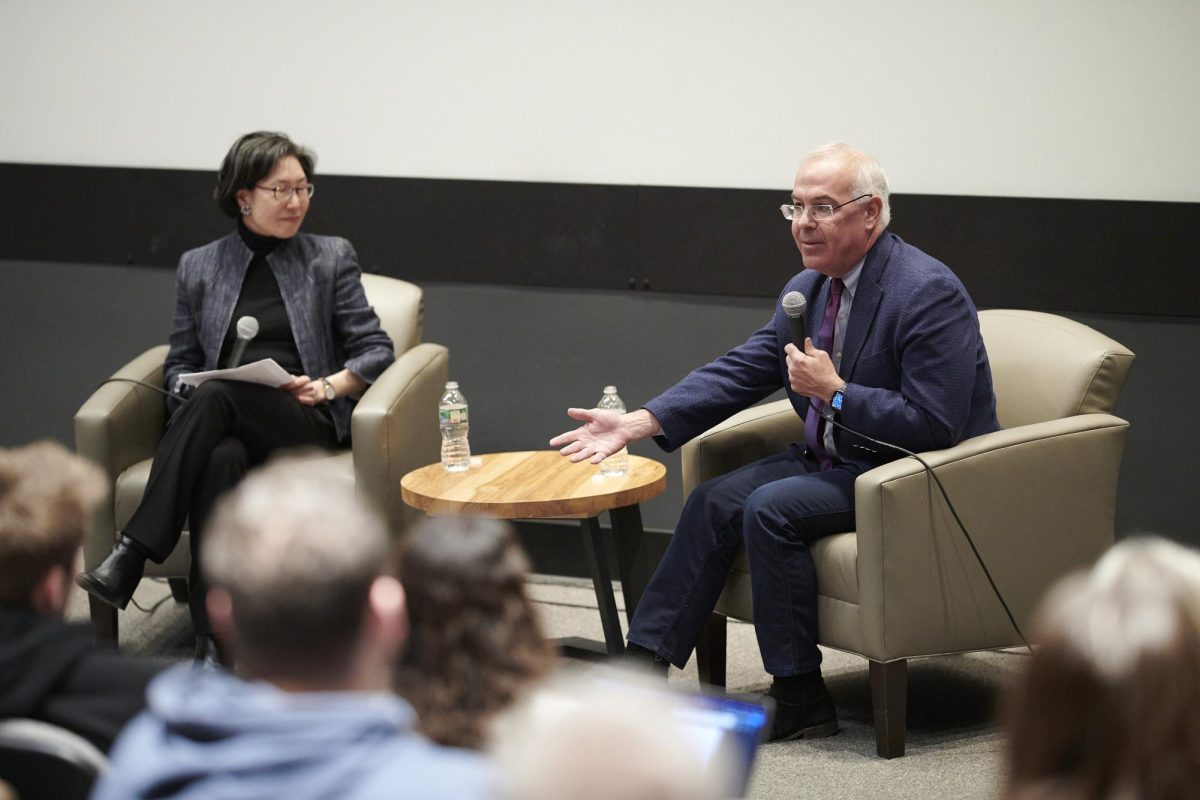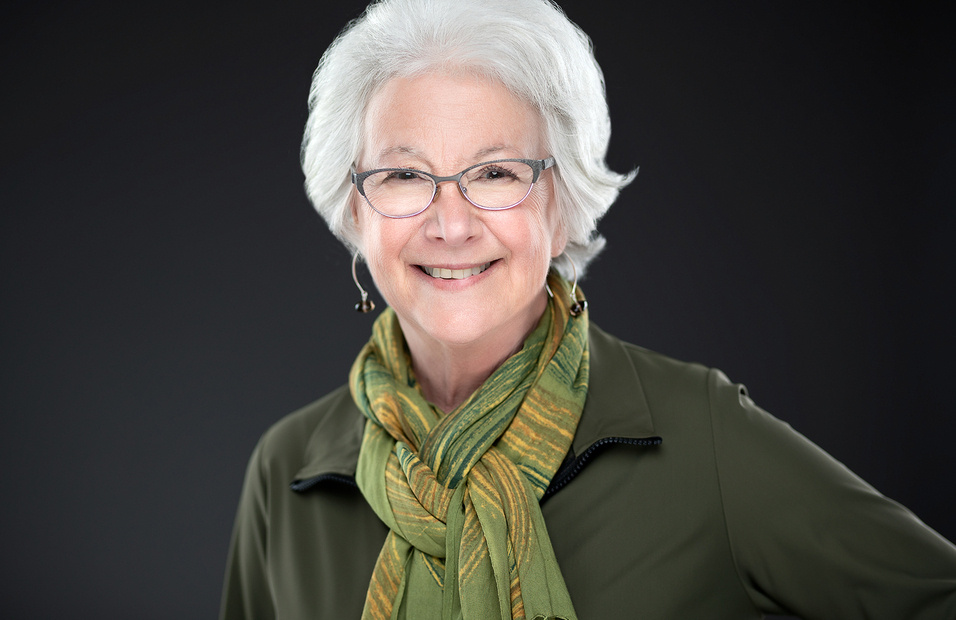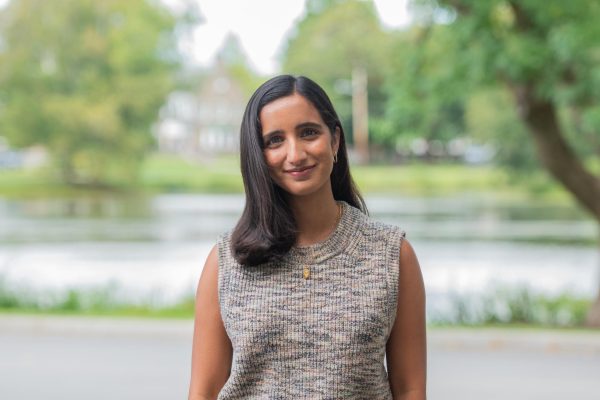As a part of the Lampert Institute for Civic and Global Affairs’ Spring 2024 lecture series, David Brooks was brought to campus for an event on Tuesday, Feb. 20. Brooks is a best-selling author and commentator who serves as an op-ed columnist for The New York Times and is a regular guest on PBS NewsHour. The event took place in the Golden Auditorium in Little Hall at 4:30 p.m. Associate Professor of Political Science and Director of the Lampert Institute Ilan Nam gave opening remarks before beginning her conversation with Brooks.
“The Institute invited Mr. Brooks to campus to discuss his most recent book, ‘How to Know a Person,’ which explores the importance of deeply attentive conversations to fostering meaningful interpersonal connections between people and the effects of such relationships upon the health of a pluralistic political society. His interest in these questions speaks to a variety of disciplines and interests on campus, so I thought he would appeal to a broad audience,” Nam said.
The talk began with Nam and Brooks discussing the difference between “illuminators” and “diminishers” as an introduction to the theme of interpersonal connection that they would continue to discuss. While diminishers are not curious and do not ask questions about others, illuminators make others feel like they are being listened to. The conversation expanded to the importance of questioning and how it is critical to learning more about people and creating interpersonal relationships.
The dialogue between Brooks and Nam also touched on modern concerns, such as the effects of social media. The speaker explained to the audience that he believes humans may be getting worse at connecting with each other and, as a result, becoming more lonely. Brooks explained that “moral formation” used to exist in various institutions in America, but this changed when there was a greater leaning toward self-realization. According to Brooks, our priorities have shifted away from bettering individual lives and character.
Throughout the event, Brooks told short stories, many of them humorous, that highlighted the book’s premise: Successful interpersonal interactions are vital in establishing meaningful connections with and learning more about our fellow man. The anecdotes ranged from experiences the speaker had himself to things he had heard about secondhand. The retellings allowed him to connect with the audience and further his arguments regarding social interaction.
The conversation continued with Brooks speaking on the complexities of morality and encouraging the audience to improve the foundational skills necessary for successful social interaction. Brooks then talked about the importance of empathy, a topic also explored in his book. He went on to explain that empathy is needed to understand people and help people understand themselves. He defined empathy as a combination of three skills: mirroring, mentalizing and caring.
Brooks shared with the audience that it is critical as a listener to encourage people to tell their complete stories, as it helps one understand how people see themselves and the narratives they shape to explain their lives. He also mentioned that this kind of meaningful social interaction helps us learn more about ourselves and the other person.
“Most of us only know our life story by the fact of being asked. [We] don’t sit down and say, ‘What’s my life story?’ But when you’re listening to a story, most of us see ourselves the way others see us. So if you see me in a certain way, that’s how I will come to see myself,” Brooks said.
After Nam asked a few more questions, the conversation opened to the rest of the audience. Brooks answered questions from the audience that spanned a variety of topics, including the current conflict in Gaza, potential gains and losses of therapy, concerns surrounding artificial intelligence and the benefits of religion.
Two student attendees, seniors Kata Mims, who asked a question Brooks about the impact of social media on social interaction, and Katherine Wilkey, commented about what they found interesting about Brooks’ visit. Mims was less familiar with Brooks’ work before the talk but still found the event worthwhile.
“I appreciate that he’s always willing to give an opinion that might be a little bit out of the mainstream. I felt like today, some of his comments I may not have necessarily agreed with politically, but I felt like I really appreciated hearing his perspective,” Mims said. “ And I think that it was an informative experience and I’m glad that I came to the talk.”
Wilkey, who was more familiar with Brooks, shared her admiration for the author.
“I love David Brooks. I’ve seen a commencement speech that he did at [the University of Chicago] in 2017 and read some of his articles, and I just am constantly impressed by his loyalty to the basic principles of life and what it means to be a good person,” Wilkey said.
When reflecting on the event, Nam emphasized Brooks’ seemingly obvious solution to helping restore society.
“I thought his conclusion that everyday acts of attention, generosity, respect and humility were moral acts that required effort, discipline and practice gave both a practical and optimistic recipe for mending our social and political fabric,” Nam said.
The Lampert Institute will continue to host events as a part of its lecture series throughout the semester. The next installation of the series will be held on Tuesday, Mar. 26.














